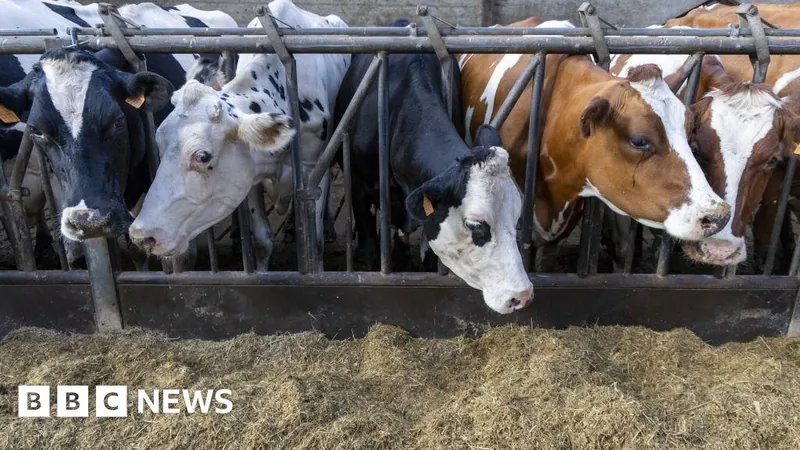
Bluetongue Virus Alert: Extended Zones in the South East – Here’s What You Need to Know!
2024-09-22
Bluetongue Virus Alert: Extended Zones in the South East – Here’s What You Need to Know!
In a concerning development, the government has once again extended the temporary restriction zones in response to the ongoing bluetongue virus (BTV-3) outbreak affecting livestock. This extension now encompasses the entirety of the South East, following the confirmation of additional cases that have raised alarm among agricultural communities.
As of Saturday, the previously designated 'high risk' and 'control' zones have been merged, expanding their reach to include all of Surrey, West Sussex, and Greater London. This proactive measure comes just days after the Department for Environment, Food and Rural Affairs extended similar restrictions across Kent and East Sussex.
A spokesperson from the government stated, "In light of new reports indicating potential clinical disease in sheep found in both East Sussex and East Yorkshire, the UK Chief Veterinary Officer has verified two new cases of BTV-3." The remarks highlight the urgent need to contain the virus as it threatens local farms and the well-being of livestock.
The government emphasizes that these zones aim to 'contain and slow the spread of disease,' particularly given the recent identification of cases near the existing bluetongue restricted zones. Already, farmers in the South East have begun to feel the financial strain of these restrictions, which can interfere with regular farming operations and lead to economic losses.
While the bluetongue virus poses no direct threat to human health, it can have devastating effects on livestock, causing symptoms like a blue, swollen tongue, diminished birth rates, and decreased milk production. The virus is primarily transmitted by midges, tiny insects that are often carried over from mainland Europe, especially during warmer weather.
With the risk of further outbreaks looming, farmers and livestock owners are urged to stay alert and prepare for potential impacts on their herds. As the government continues to monitor the situation, the agricultural community remains on high alert, hoping for a swift resolution before the economic repercussions worsen.
Stay tuned for further updates and ensure your livestock are protected against this pressing threat!




 Brasil (PT)
Brasil (PT)
 Canada (EN)
Canada (EN)
 Chile (ES)
Chile (ES)
 España (ES)
España (ES)
 France (FR)
France (FR)
 Hong Kong (EN)
Hong Kong (EN)
 Italia (IT)
Italia (IT)
 日本 (JA)
日本 (JA)
 Magyarország (HU)
Magyarország (HU)
 Norge (NO)
Norge (NO)
 Polska (PL)
Polska (PL)
 Schweiz (DE)
Schweiz (DE)
 Singapore (EN)
Singapore (EN)
 Sverige (SV)
Sverige (SV)
 Suomi (FI)
Suomi (FI)
 Türkiye (TR)
Türkiye (TR)